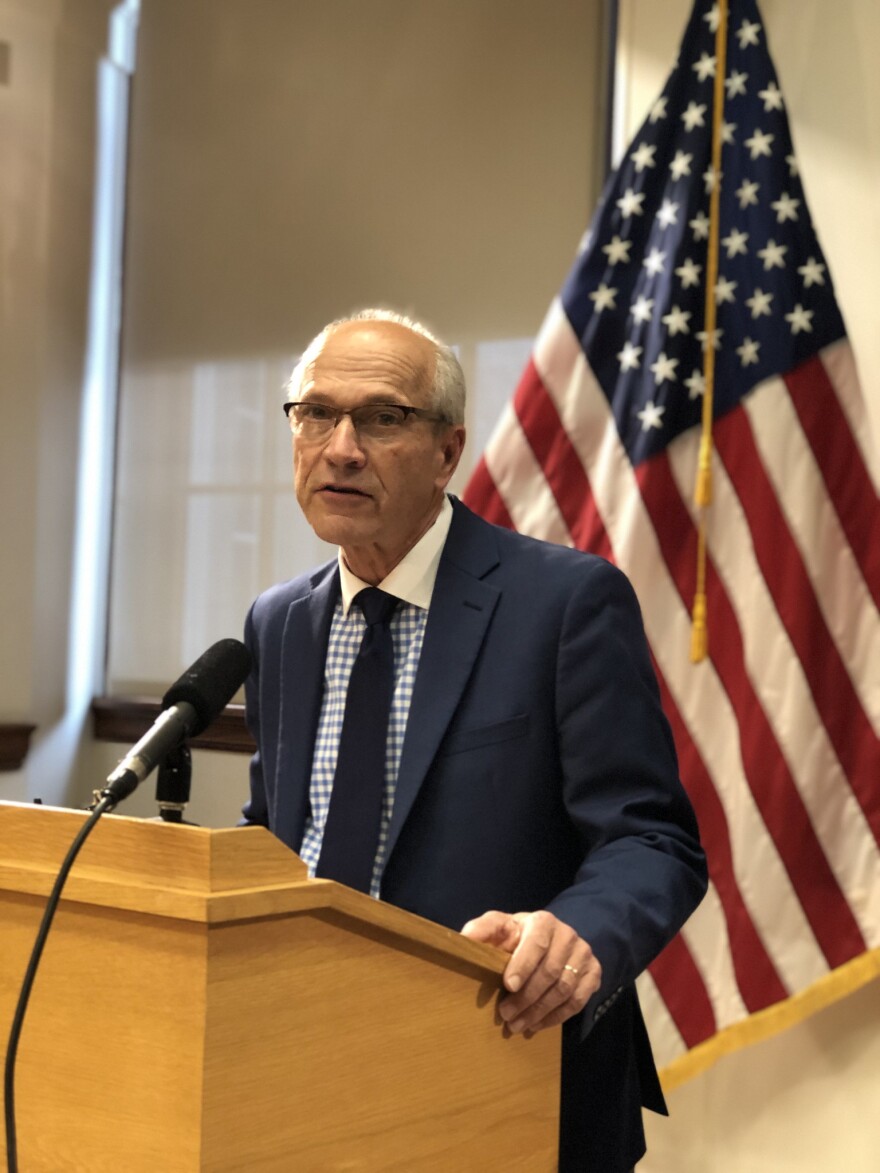The U.S. Drug Enforcement Administration recently released data tracking opioid pill distribution from 2006 to 2012. It shows more opioid pills were handed out in Penobscot County than in any other county in New England. But by 2016, Maine had already moved to address issues of overprescribing. The state passed a law that set education and training standards for opioid prescribers.
Gordon Smith helped administer that program and is Maine's first director of opioid response. He spoke with Maine Public’s Irwin Gratz.
Gratz: So, how does it shape our understanding of the start of the opioid crisis, especially in an area like Penobscot County?
Well, I think it helps us trace the history. It's a bit old, the data, but it's an important piece of information in terms of how we got to where we are now.
Maine started working to limit prescriptions through educating and training that was set up by that 2016 legislation. What has been learned over the course of this last couple of years?
Well, we know that prescriptions for pain control have decreased 41.5% over the past six years.
And so in relation to the opioid crisis itself, are we beginning to see any correlation between that decline and what's happening at the other end, if you will?
Well, there's fewer deaths associated with pills than there were historically. 20% of our overdoses were primarily pills in the last report from the Chief Medical Examiner's office. So we do see a correlation, and it's been a tremendous amount of education, and the law has been quite successful in preventing overprescribing
Is there more work to be done in that area, or at this point, do you feel that the medical profession has the prescribing of opioids under control?
There's more work to be done.
There is a contract through Maine Care and the Office of Substance Abuse and Mental Health Services that puts actual prescribers out in the field. And each prescriber has to have three hours of education every two years. I now have access to the PMP data, that being the Prescription Monitoring Program, so that in addition to speaking to groups of prescribers, we can do interventions with individuals who are outliers.

Now, when all of this kind of got started years ago, I recall there was a lot of talk at the time that the medical profession was not doing all it could to help people deal with pain, which is how we started to go down the road of using opioids at a greater rate. Can you tell us a little bit about the message that's being sent now to medical professionals about how to handle people who really do come to them with pain of one kind or another?
So there's two primary messages. One is that the data shows that the prescribing of long acting opioid medication for chronic pain is not effective. Number two, there are lots of alternatives to opioids, including cognitive behavioral therapy, chiropractic, physical therapy. And today when a person comes in with chronic pain, you're not going to start them on an opioid, you're going to send them the physical therapy, or to one of the many other osteopathic manipulation for instance, and see how they do.
In other words the medical profession is being asked, among other things, to be more creative in how it looks at a pain issues.
Yes. But we also need the cooperation of insurance companies to make sure that they offer coverage for these types of alternatives.
At this point in Maine, does that require additional legislation?
Well, at this point, no. But I think if the progress that we're making isn't helping people, we're not getting the cooperation of the insurance companies, then we would consider legislation. The fact that I've only been five months in the position gives me, you know, an opportunity now to try to achieve as much as we can through collaborative efforts rather than legislative mandates, but if the collaborative efforts are not successful, then legislation should be considered.
Do you feel that some of what you have been able to do that is already beginning to show fruit is part of those declining numbers that you were citing earlier?
Well, that's a lot of work that I was doing while I was at the Medical Association in terms of the educational efforts, and that certainly has led to the decline in prescribing of opioids, along with the law. I think the other efforts in terms of treatment, harm reduction prevention is all beginning to help. And the best example of that is the 1100 people who joined us at the Augusta Civic Center on Monday this past week.
Were there any new ideas or approaches that emerged from that?
Yes, I think that were. We had presentations from my counterparts in Rhode Island, in Vermont and New Hampshire. And, for instance, in New Hampshire, they have a federal Department of Labor grant that helps people who are in recovery be employed. This has always been a problem with a lot of employers reluctant to hire people who have a criminal history, or have a previous history with addiction. And we now have the potential of getting federal funds to have a similar program here in Maine. We have more jobs than we have people to take them. And so I think it's a particularly good time to establish programs for people in recovery.
Ed note: this interview was edited for length and clarity. Originally published 4:20 p.m. July 19, 2019



